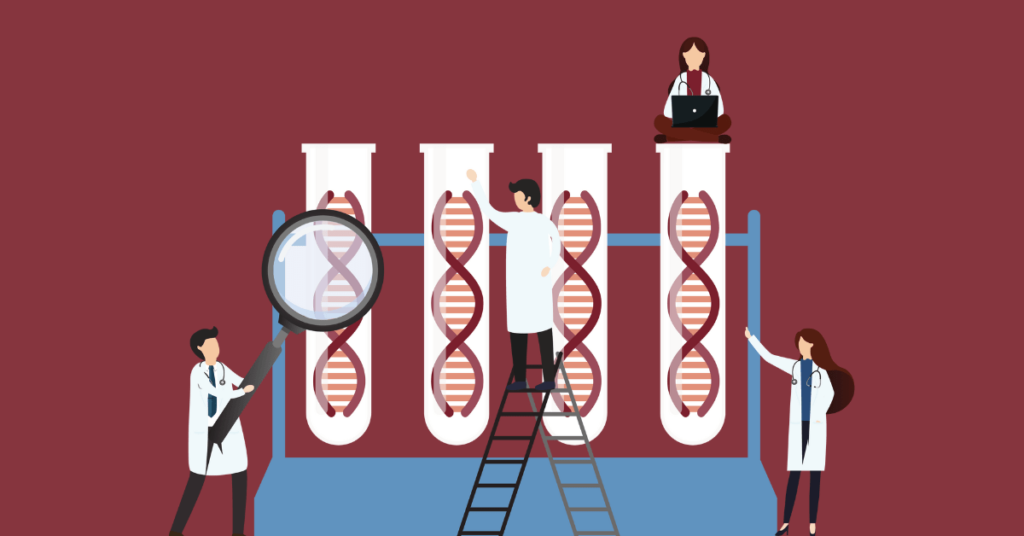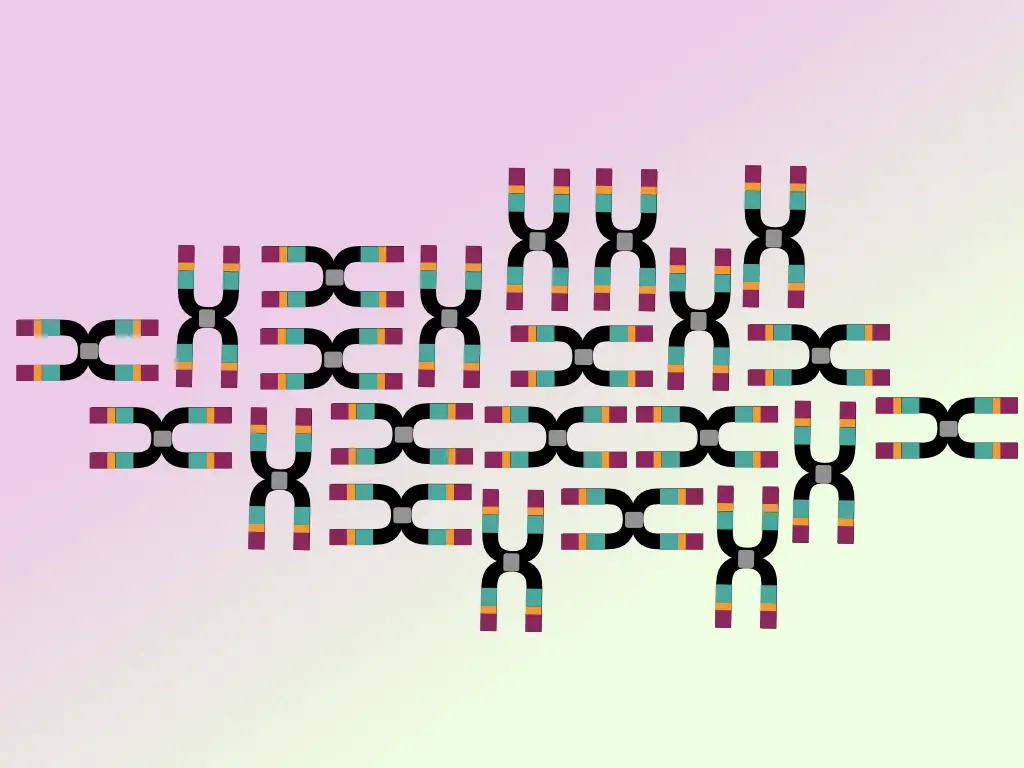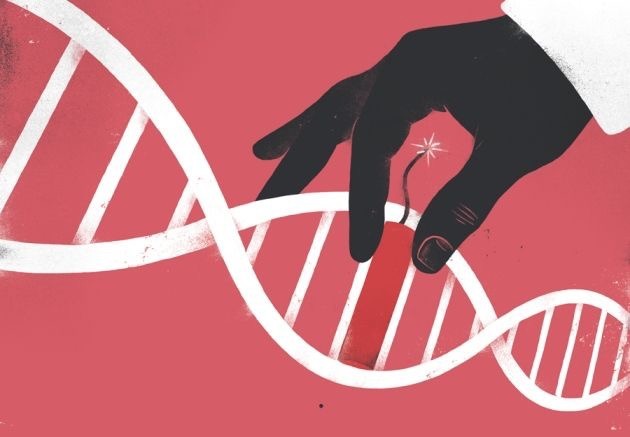“Learn about the information provided by diverse DNA test results from genetic health markers to ancestral origin, and gene mutations to drug resistance.”
The DNA testing industry is growing positively every year. The DNA testing market was a $15.5 billion industry in 2022 and will reach $40.9 Billion by 2032. People are ordering more and more genetic tests for various purposes.
Doctors are now sending more samples to test various types of disorders. Moreover, DNA tests are ordered for disease prediction, drug resistance and metagenomic studies as well.
A DNA test- a type of genetic test, simply means, testing a patient’s/individual’s/sample’s DNA for various purposes. Although such tests are now known to everyone, they lack knowledge of what the results tell us.
In this article, I will explain 10 pieces of information that a DNA test will tell us. I will explain each type of DNA test result comprehensively. The present article is intended for informational purposes and for students seeking knowledge on DNA tests.
Testing decisions should not be solely based on this information by parents or patients. It is strongly advised to consult with your doctor for personalized guidance.
Stay tuned
Key Topics:
10 Things DNA Test Results Tell Us:
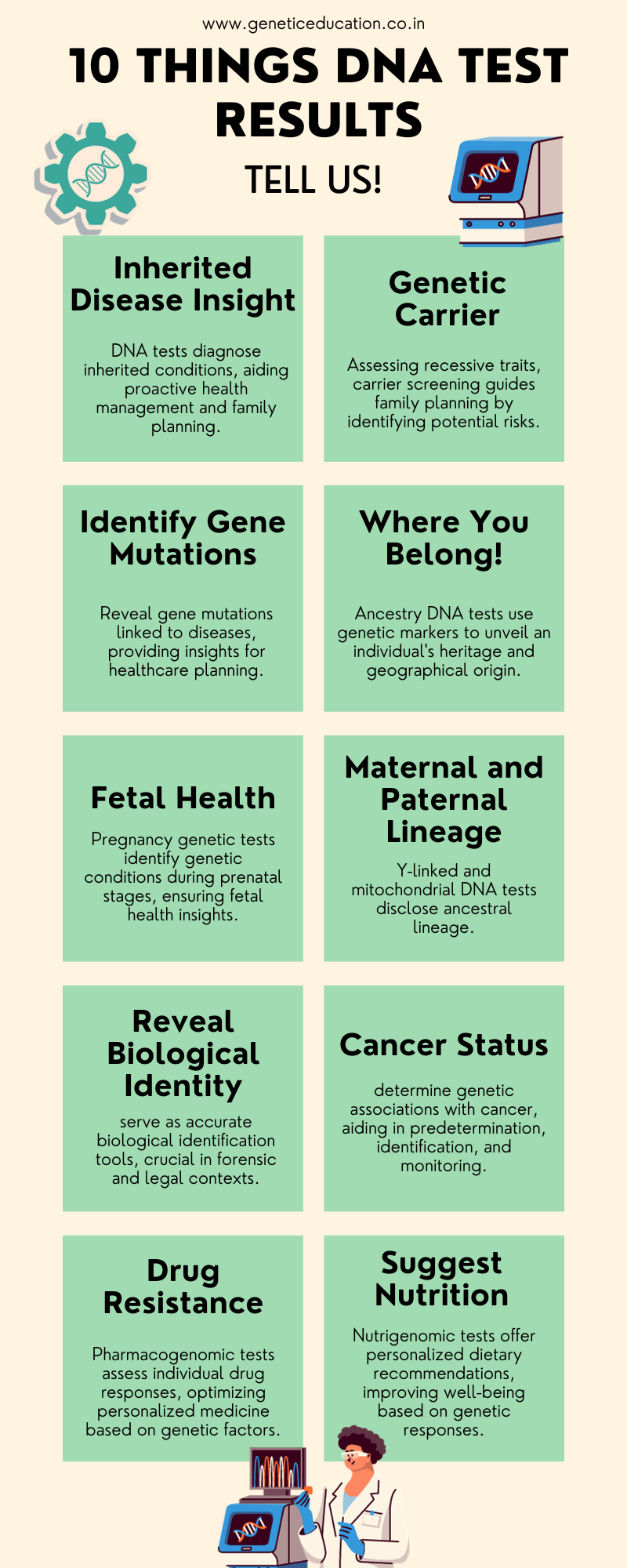
Inherited disease insight
A conventional and classic application of a DNA test, for which it was developed, is to diagnose inherited diseases. Thalassemia, sickle cell anemia, Fragile X syndrome, Duchenne Muscular Dystrophy, etc are examples of inherited genetic disorders.
Such conditions can be passed down from parents to their children and are incurable. DNA test results help us know whether a genetic disease is inherited or runs in the family.
The results also help understand conditions like autosomal and X-linked dominant and recessive genetic inheritance. Thereby, allowing for proactive health management and informed family planning.
Carrier status clarity
Carrier screening is significantly important for parents having a previous or running history of recessive genetic disorders in their family. A recessive genetic condition is a bit tricky. It only causes disease when two recessive alleles are inherited together.
Otherwise, having a single allele is completely a normal condition. Evaluation of carrier status for specific genetic conditions, indicating the likelihood of passing on recessive traits to offspring.
The results of a carrier genetic test help couples in family planning by identifying potential risks and guiding decisions about reproductive choices.
Identify gene mutations
Mutations, in simple terms, are abnormalities or problems in a gene or DNA. This causes serious health-associated complications. A DNA test identifies mutation(s) associated with a genetic condition or disease.
However, mutations associated with chromosomes like large deletions or duplications can be studied using a chromosome or karyotype test. DNA test results for gene mutations tell us if any mutations are associated with a gene or group of genes involved in a disease or pathway.
Related article: Genetic Mutations- Definition, Types, Causes and Examples.
From where you belong!
One of the fascinating and widespread uses of a DNA test is to understand the ancestry of an individual. Genetic markers like STRs, VNTRs, mtDNA and Y-linked markers are tested to determine the geographical origin and migration patterns.
Meaning, an individual can know from which ethical and geographical group they belong. Hence, the results of an ancestry DNA test unfold a comprehensive understanding of an individual’s heritage and connection to ancestral roots, biologically.
Fetal health
The prevalence of congenital genetic conditions is increasing every year. A DNA test known as a pregnancy genetic test helps determine fetal health. Certain genetic conditions, for example– fragile X syndrome or Thalassemia can be identified during the prenatal stage.
In addition, newly emerged cell-free fetal DNA tests can accurately predict certain types of cancers. Thus, pregnancy genetic test results reveal the fetal health or genetic status.
Related article: Pregnancy Genetic Testing- What, When and Why.
Maternal and Paternal lineage
The results of a Y-linked marker and mitochondrial DNA tests unravel the maternal and paternal lineage, respectively. Again, such information helps us understand the ancestry of an individual- their lineage, history, origin and route of migration.
Related article: Paternity DNA Test- Process, Results, Legal Proceeding and Cost.
Reveal biological identity
A DNA test is ‘the most’ accurate biological identification test. Unique genomic markers like STRs and VNTRs have been studied to understand the biological relation between two individuals, samples or persons.
A DNA test plays a pivotal role in forensic analysis, serving as a powerful tool in resolving criminal cases and establishing parentage in custody disputes involving children.
It involves examining the unique DNA patterns of individuals and results provide conclusive evidence, aiding law enforcement and legal professionals in making informed decisions.
Related article: DNA Fingerprinting- Definition, Steps, Methods and Applications.
Cancer status
The global burden of cancer is prevalently increasing every year. The genetic foundation of cancer is now determined. Genes’ and related mutations’ association with various cancer types are known as well.
DNA test results help in predetermine, identify, study and monitor cancer. Henceforth, it’s extensively applied in the cancer field. Healthcare professionals know about the genes involved in cancer as well as treatment outcomes. They can also monitor cancer progression.
In recent times, a predictive genomic test, which is a type of DNA test, has been developed that pre-determines one’s likelihood of acquiring a particular type of cancer. It tests various genetic markers associated with different types of cancer and the results provide a predictive risk score.
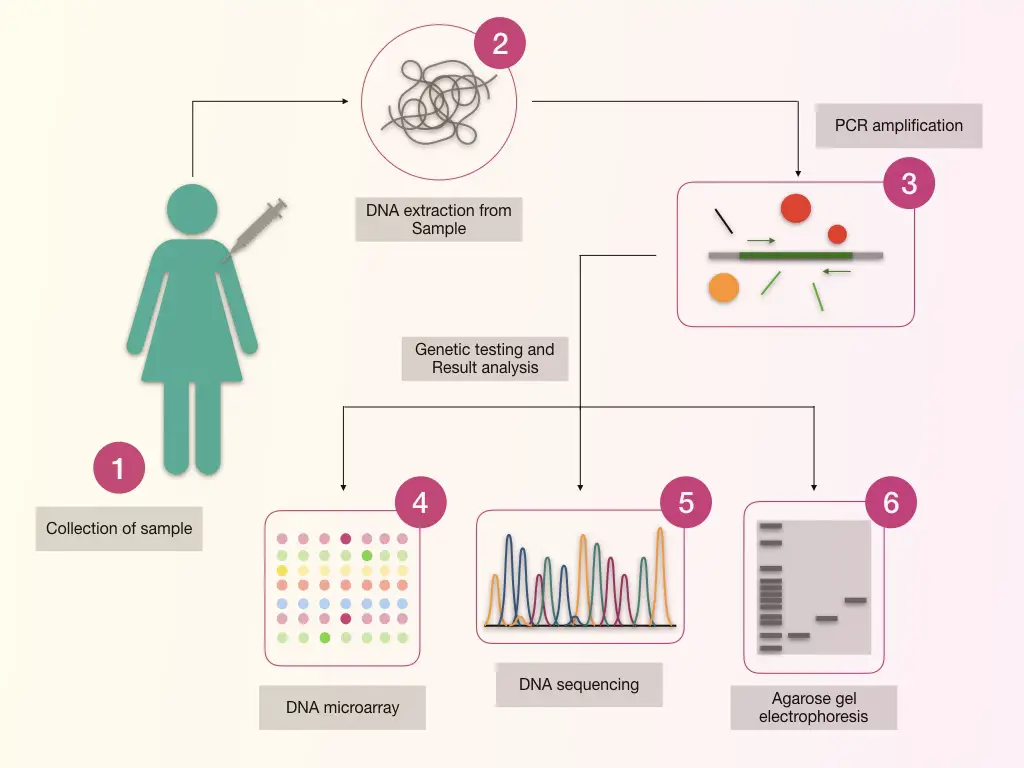
Related article: Cancer Genetic Testing- What Is It & How It’s Done?
Drug resistance
The epigenetic profile varies from individual to individual, due to their interaction with the environment. Gene-environment interaction shapes an individual’s genetics for survival.
Meaning, that some traits or genotypes are beneficial for ‘some’ but not for others. Recent studies suggest that drug response also varies from individual to individual based on this factor.
The genetic makeup of a person does impact their response to certain medications. A specialized DNA test known as a pharmacogenomic test helps to understand an individual’s response to certain drugs.
The results of this test facilitate personalized medicine by optimizing drug selection and dosage and minimizing adverse reactions based on genetic factors.
Suggest nutrition
Dietary habits can also influence the genetic makeup and produce adverse effects. A DNA test, known as a nutrigenomic test examines genetic variants influencing how the body responds to nutrients and dietary components.
Based on the genetic response, the results of the present type of DNA test help with personalized dietary recommendations, optional nutrient and dietary components requirements.
Therefore, it helps improve overall well-being based on an individual’s genetic response.
Read more:
Wrapping up:
In conclusion, DNA test results provide us with diverse and lucrative information regarding various aspects of an individual’s life and health. Starting from knowing the disease inheritance status, mutations and cancer prediction, it also provides information regarding the ancestral roots, personalized nutrition, and drugs and reveals biological identity.
Moreover, predictive testing determines the polygenetic risk of acquiring various types of disease conditions. I hope you understand what the results of DNA tests tell us from this article. If you do, please share it article on other groups and social media platforms and spread awareness.
